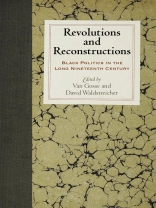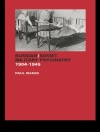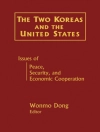Revolutions and Reconstructions gathers historians of the early republic, the Civil War era, and African American and political history to consider not whether black people participated in the politics of the nineteenth century but how, when, and with what lasting effects. Collectively, its authors insist that historians go beyond questioning how revolutionary the American Revolution was, or whether Reconstruction failed, and focus, instead, on how political change initiated by African Americans and their allies constituted the rule in nineteenth-century American politics, not occasional and cataclysmic exceptions.
The essays in this groundbreaking collection cover the full range of political activity by black northerners after the Revolution, from cultural politics to widespread voting, within a political system shaped by the rising power of slaveholders. Conceptualizing a new black politics, contributors observe, requires reorienting American politics away from black/white and North/South polarities and toward a new focus on migration and local or state structures. Other essays focus on the middle decades of the nineteenth century and demonstrate that free black politics, not merely the politics of slavery, was a disruptive and consequential force in American political development.
From the perspective of the contributors to this volume, formal black politics did not begin in 1865, or with agitation by abolitionists like Frederick Douglass in the 1840s, but rather in the Revolutionary era’s antislavery and citizenship activism. As these essays show, revolution, emancipation, and Reconstruction are not separate eras in U.S. history, but rather linked and ongoing processes that began in the 1770s and continued through the nineteenth century.
Contributors : Christopher James Bonner, Kellie Carter Jackson, Andrew Diemer, Laura F. Edwards, Van Gosse, Sarah L. H. Gronningsater, M. Scott Heerman, Dale Kretz, Padraig Riley, Samantha Seeley, James M. Shinn Jr., David Waldstreicher.
Tabla de materias
Introduction. Black Politics and U.S. Politics in the Age of Revolutions, Reconstructions, and Emancipations
Van Gosse and David Waldstreicher
Chapter 1. Women’s Politics, Antislavery Politics, and Phillis Wheatley’s American Revolution David Waldstreicher
Chapter 2. Rethinking White Supremacy: Black Resistance and the Problem of Slaveholder Authority
Padraig Riley
Chapter 3. In the Woodpile: Negro Electors in the First Reconstruction
Van Gosse
Chapter 4. Freedom and the Politics of Migration After the American Revolution
Samantha Seeley
Chapter 5. Black Migration, Black Villages, and Black Emancipation in Antebellum Illinois
M. Scott Heerman
Chapter 6. Practicing Formal Politics Without the Vote: Black New Yorkers in the Aftermath of 1821
Sarah L. H. Gronningsater
Chapter 7. ‘Agitation, Tumult, Violence Will Not Cease’: Black Politics and the Compromise of 1850
Andrew Diemer
Chapter 8. Black Politics and the ‘Foul and Infamous Lie’ of Dred Scott
Christopher James Bonner
Chapter 9. The ‘Free Cuba’ Campaign, Republican Politics, and Post-Civil War Black Internationalism
James M. Shinn Jr.
Chapter 10. The Southern Division: Freedpeople, Pensions, and Federal State Building in the Post-Confederate South
Dale Kretz
Epilogue. Telling and Retelling: The Diversity of Black Political Practices
Kellie Carter Jackson
Afterword
Laura F. Edwards
Sobre el autor
Van Gosse is Professor of History at Franklin and Marshall College. David Waldstreicher is Distinguished Professor of History at the Graduate Center, City University of New York.












